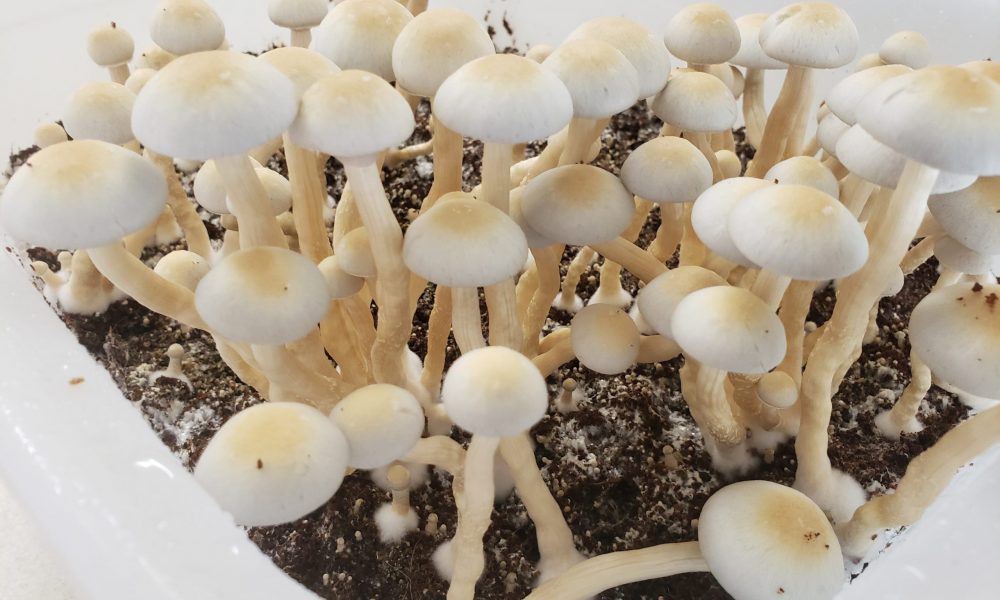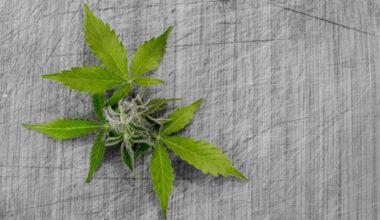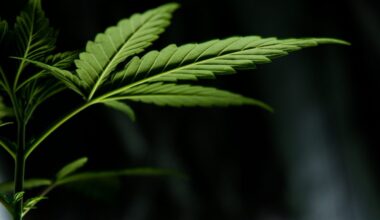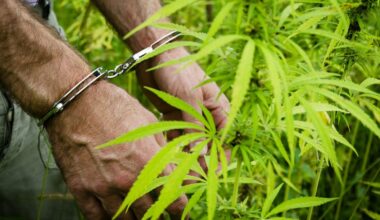Georgia lawmakers discussed the therapeutic potential of psychedelics like psilocybin for serious mental health conditions at a hearing focused on military veterans last week.
Experts and people with personal experience with psychedelic treatment testified before the House Defense and Veterans Affairs Committee, sharing information about emerging research into the medical value of entheogenic substances and the long-term benefits they may have for conditions like post-traumatic stress disorder (PTSD).
The panel approved a bipartisan resolution in March that called for the formation of a House study committee to investigate the therapeutic potential of psychedelics and make recommendations for reforms. But as Chairman Heath Clark (R) explained, there were more than a dozen study committee that were created during the last session, and the psychedelics proposal was set aside and not enacted.
The legislation, sponsored by House Appropriations Public Safety Subcommittee Chairman Bill Hitchens (R), might not have crossed the finish line this past session—but Clark said “this is a discussion we need to have and make some recommendations for this body going forward in the next session to look at moving forward and potentially seeing some funds to get the study off the ground.”
Clark, who is retiring and not running for reelection this year, said at the beginning of last week’s hearing that it was his “honor, maybe my last act as chairman of this committee, to look at some innovative groundbreaking medical advances that are happening and ways to deliver some treatment and care to our veterans.”
One of the first witnesses to testify was Boadie Dunlop, medical director for the Emory Healthcare Veterans Program and the co-author of an upcoming study on psilocybin-assisted therapy that is set to be published in the New England Journal of Medicine.
He said that the research he worked on is “a groundbreaking piece of work because it’s for the first time showing that these [psychedelic] agents that have been on what we call Schedule I—so not for a medical use— actually can have power in the treatment of psychiatric disorders when delivered as part of a psychotherapy.”
Ethan Whitfield, a 23-year Army veteran who suffered from PTSD, shared his personal story of finding successful treatment with psilocybin after exhausting traditional medical options. He said that the hearing marked the one-year anniversary of his psilocybin treatment, and he’s been sober ever since, even though he didn’t go into the therapy with the intention of cutting out alcohol and other substances.
“Traditional medicine, I do think, does have amazing breakthroughs and other benefits,” he said. “But with that said, I think there should be a balance struck with looking at other modalities of treatment and therapies as well. This [psilocybin] therapy, for instance, has been used for thousands of years.”
Clark said that, as a Christian, he feels that it’s important to “redeem what God has created, to use it for good,” even if some people may “have abused this recreationally.” The next legislative session in Georgia begins on January 9.
—
Marijuana Moment is tracking more than 1,500 cannabis, psychedelics and drug policy bills in state legislatures and Congress this year. Patreon supporters pledging at least $25/month get access to our interactive maps, charts and hearing calendar so they don’t miss any developments.![]()
Learn more about our marijuana bill tracker and become a supporter on Patreon to get access.
—
Lawmakers on the panel discussed legislation enacted in Texas last year that requires the state to study the therapeutic potential of psychedelics.
The day after the Georgia committee held its psychedelics hearing last week, lawmakers in Missouri met to discuss possible solutions to the military veterans’ mental health and suicide crisis, with several people testifying about the possible therapeutic potential of psychedelics for the at-risk population.
Missouri Rep. Tony Lovasco (R) introduced a psychedelics reform bill for the 2022 session. It was addressed during a hearing in the House Health and Mental Health Policy Committee in March, but it did not advance.
According to a poll released in July, 54 percent of Americans said that they favor “allowing research into the therapeutic potential of certain psychedelic substances for active-duty military members with post-traumatic stress disorder (PTSD).” That includes 60 percent of Democrats, 45 percent of Republicans and 54 percent of independents.
An effort to legalize psychedelics possession for adults in California was abandoned last month after it was significantly watered down in an Assembly committee, with the sponsor Sen. Scott Wiener (D) pulling the bill because it was effectively reduced to a study proposal.
Colorado voters will see a historic initiative to legalize psychedelics possession and create psilocybin treatment centers in the state on the ballot this November.
Meanwhile, a top federal health agency says it is actively “exploring” the possibility of creating a task force to investigate the therapeutic potential of certain psychedelics like psilocybin and MDMA in anticipation of federal approval of the substances for prescription use.
Medical Disclaimer:
The information provided in these blog posts is intended for general informational and educational purposes only. It is not a substitute for professional medical advice, diagnosis, or treatment. Always seek the advice of your physician or other qualified healthcare provider with any questions you may have regarding a medical condition. The use of any information provided in these blog posts is solely at your own risk. The authors and the website do not recommend or endorse any specific products, treatments, or procedures mentioned. Reliance on any information in these blog posts is solely at your own discretion.






